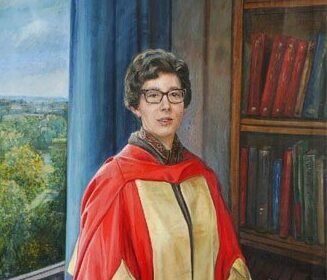We are governed by a Board of Trustees consisting of academics and experts of national and international standing and experience with a wide range of academic, professional, management, fundraising and communications skills. We also are honoured to be able to call on some amazing individuals to act as our patrons to promote our work.
Trustees
Professor Tom Welton OBE FRSC FCGI Chair of Trustees
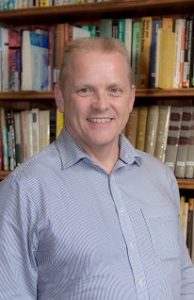
Tom Welton is Professor of Sustainable Chemistry at Imperial College London. He served as Head of the Department of Chemistry from 2007 to 2014 and as Dean of the Faculty of Natural Sciences from 2015 to 2019. He is a Fellow and the current President of the Royal Society of Chemistry. Tom’s research focuses on sustainable chemistry, with particular focus on ionic liquids and on solvent effects on chemical reactions. He is the author of over 140 research papers.
The promotion of Equity, Diversity and Inclusion has always been critically important to Tom. Under his tenureship as Head of Department, Chemistry at Imperial won its first Athena SWAN Gold award. He co-founded the Irene Juliot-Curie conferences, dedicated to addressing barriers to career progression, and to support diversity, in the chemical sciences.
Tom is a L’Oréal-UNESCO Male Champion for Women in Science, and member of the EDI advisory boards of both UKRI and Elsevier.
Carol Bewick
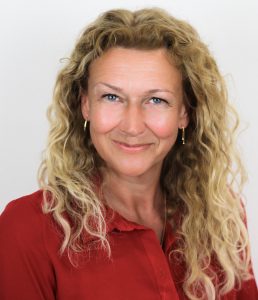
Carol Bewick is Chief Executive of the British Society of Haematologists. Most recently before that she was Director of Membership Engagement at the Association of Medical Research Charities (AMRC) – the membership body for the UK’s medical research charity sector. She has specialised in engagement across sectors, particularly during times of change and crisis – from the Metropolitan Police Service to the Arts Council and the nuclear industry to NICE. She has worked in agency, private, public and charity sectors as well as running her own company. She joined the charity sector in 2012 and has never looked back. Carol was a carer for over ten years and has volunteered as an involved person and patient advocate.
Dr Sophie Duport
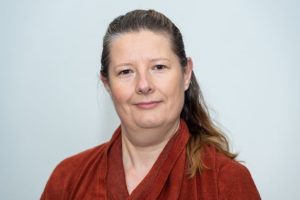
Dr Sophie Duport studied Physiology and Neurosciences at the University de Savoie in Chambery, and at the Universite de Lyon. Subsequent to completing a PhD in Neurosciences at the Centre Medical Universitaire, Geneva, she relocated to the UK to take up a research position at UCL. In 2004, she moved into clinical research and joined the Research Department at the Royal Hospital for Neuro-disability, Putney, where she is now Associate Director of Research.
Sophie is the founder and co-facilitator of the Advanced Huntington’s Disease working group of the European Huntington‘s Disease Network. She is an elected Fellow of the Society of Biology, and has been an expert evaluator on a number of European grant schemes.
Dr Samantha Francis

Dr Samantha Francis is a Deputy Director within Research Base at EPSRC. She has strategic oversight for Research Infrastructure and the Digital Futures portfolio as well as EPSRC’s Monitoring our Portfolio and Priorities strategy. She joined EPSRC in 2007 after completing a Master’s Degree in Physics at the University of Bristol.
Samantha has held a number of positions at EPSRC including; Cross-Disciplinary Interfaces Portfolio Manager, Head of Peer Review, Head of Balancing Capability and, prior to her current role, was Head of the Information and Communication Technologies (ICT) Theme for three years.
In her spare time she is undertaking an accounting qualification and is the Treasurer of a local pre-school nursery.
Dr Jane Gate
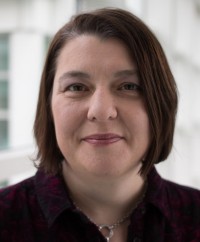
Dr Jane Gate is the Executive Director of AIRTO – the Association of Innovation, Research and Technology Organisations – fulfilling this role at the National Physical Laboratory since 2011, and since 2021, at the Net Zero Technology Centre.
Jane is a life science graduate from the University of Reading, with a PhD in animal physiology. She began her working-life at the Institute for Animal Health, and held a range of management and leadership roles at King’s College London, within the health schools, and the university’s research commercialisation division, King’s Business Ltd., where she was Director of Business Development.
With three grown-up sons, Jane knows the joys and challenges of balancing a career in science and innovation with caring responsibilities. Her strengths lie in her ability to build partnerships with others, and in her logical and analytical approach to decision-making. She is passionate about equality, diversity and inclusion being attained in the science and innovation arena. Being from a working-class background, and becoming the first from her family to go to university, Jane esteems the potential of education and STEM career opportunities to tackle social inequalities.
Dr Ruth Gilligan
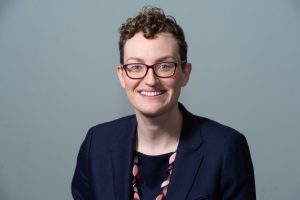
Dr Ruth Gilligan is Assistant Director for UK Equality Charters at Advance HE. She is responsible for the strategic leadership of the Athena Swan Charter for gender equality and the Race Equality Charter which operate in the UK and internationally. These impactful equality frameworks help organisations to identify and address their equality issues, with progress recognised with highly-esteemed Bronze, Silver and Gold awards.
During her time working with the Equality Charters, she has been responsible for introducing the Athena Swan Charter to the Republic of Ireland, which was the first international expansion of the Charter, for the expansion of the Charter to all academic disciplines and professional areas, and for the recent reviews and development of both UK Charters.
Ruth’s academic background is in organic chemistry, and after completing her PhD at the University of Cambridge, she worked at Science Foundation Ireland, the largest funder of competitive research in Ireland in the Policy and Pre-Award Divisions. Drawing on her background in research and professional expertise, Ruth acts as an equality, diversity and inclusion adviser nationally and internationally.
Nazia Hirjee
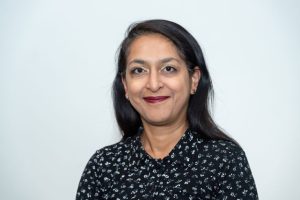
Nazia Hirjee is Chief Operations Officer at the Aerospace Technology Institute, which creates the technology strategy for the UK aerospace sector and funds a large research and development programme in sustainable civil aviation. She is responsible for the Institute’s business operations and governance activities.
Prior to this role, Nazia worked in the university sector and in financial services in a variety of finance and operations roles. She is a Geography graduate from the University of Oxford and has an accountancy qualification from the Chartered Institute of Management Accountants.
Dr Kerstin Kinkelin
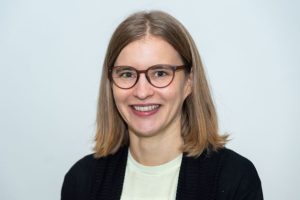
Dr Kerstin Kinkelin is Innovation Manager at the Bristol BioDesign Institute, where she works with academics to identify opportunities for translation and partnering presented by their research in synthetic and engineering biology. She also oversees a wide programme of activities for early career researchers to develop their skills in translational research and innovation.
A biochemist by training, Kerstin moved into research management after several years in research in Germany and the UK. She has experience in researcher development, research funding and research programme management, working for organisations such as the Francis Crick Institute, the Royal Society and Blood Cancer UK.
Professor Stephen Newstead
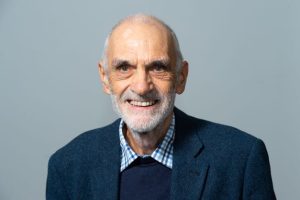
Stephen Newstead is Emeritus Professor of Psychology at the University of Plymouth, where he worked for nearly 40 years in a variety of roles, ranging from Lecturer to Acting Vice-Chancellor.
His principal research interest is in the cognitive psychology of thinking, reasoning and problem solving, but he also has a long-standing interest in the psychology of teaching, learning and assessment in higher education.
He is a former President of the British Psychological Society and has served on a number of national committees, including the Psychology Panel of the Research Assessment Exercise (now the Research Excellence Framework). Now retired, he still lives near Plymouth and enjoys walking, gardening, golf and playing with his grandchildren.
Dr Kotryna Temcinaite
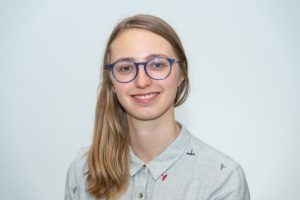
Dr Kotryna Temcinaite is the Senior Research Communications Manager at the research and care charity Breast Cancer Now. Leading a team of science communicators, she specialises in translating complex scientific information to non-specialist audiences across PR, digital and fundraising communications. Over the years working in medical research charities, she has been involved in a broad range from projects, from public engagement with science and communication training for researchers, to attracting high-level donations to medical research.
Kotryna moved from Lithuania to the UK because of the excellent quality of its higher education and its global position in research. She studied biochemistry at the University of St Andrews and subsequently completed a PhD in molecular biology at the Francis Crick Institute awarded by University College London.
Dr Maria Tennant
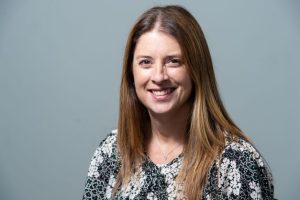
Dr Maria Tennant is a senior communications professional and chartered PR practitioner with several years’ experience working in PR and communications across many sectors, including charities, universities, local government and healthcare.
Maria runs her own writing and communications consultancy. Previously Maria was Head of PR and Digital at the medical research charity LifeArc, where she managed all external communications, including the website and digital, social media, press and media, and conferences. Before that she was Head of Communications for the charity Kidney Research UK, where her team ran the press office, research communications, strategic and corporate communications and social media, and led award-winning health awareness campaigns. A research engagement and communications specialist, Maria is passionate about bringing research to life and telling the stories of the science and the people behind it.
A research scientist by training, Maria has also worked as a post doc in academia and industry following her PhD in Neuroscience.
Professor Christopher Whitehead

Christopher Whitehead is Professor Emeritus of Chemistry at the University of Manchester.
He was Head of the School of Chemistry from 2009-2014 during which time the School was awarded the Athena SWAN Silver Award and has worked extensively with Early Career Researchers helping them to develop their careers.
A graduate of Edinburgh and Cambridge Universities, Christopher held Fellowships from the Royal Commission for the Exhibition of 1851 at Cambridge and from the Lindemann Trust at Columbia in New York.
He joined Manchester University in 1977 where his research involves the use of plasma discharges for the treatment of pollutants and the conversion of waste gases to fuels. He is a Fellow of the Royal Society of Chemistry and a Chartered Chemist.
Patrons
Professor Dame Athene Donald FRS
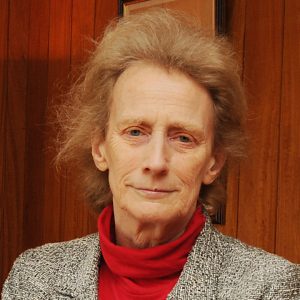
Athene Donald carried out her first and second degrees at the University of Cambridge in physics, before spending four years at Cornell University in the USA as a postdoc. Thereafter she returned to Cambridge, where she has been ever since, becoming a Professor in 1998 and an FRS in 1999. Her research field is soft matter and biological physics, with a particular emphasis on different types of microscopy. She currently sits on the Scientific Council of the European Research Council. From 2010-14 she was the University’s first Gender Equality Champion and she writes regularly (on her own blog and in mainstream media) about gender issues. In 2010 she was appointed a DBE for services to Physics and since 2014 she has been Master of Churchill College.
Vivienne Parry OBE
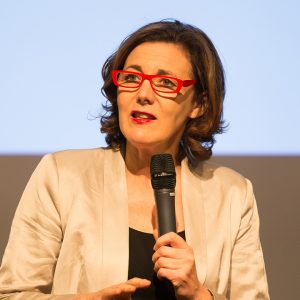
A scientist by training, Vivienne Parry hosts medical programmes for BBC Radio 4, writes widely on health, presents films, facilitates many high level conferences and debates and trains young researchers. She also has a part-time role as head of engagement at Genomics England which is delivering the 100,000 Genomes Project. She is a board member of UK Research & Innovation (UKRI) which is responsible for the UK’s £6 billion research and innovation strategy.
Maggie Philbin OBE
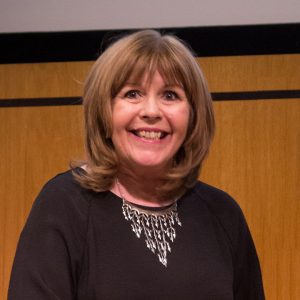
Maggie Philbin has worked in radio and television for over 30 years on a wide range of science, medical and technology programmes. She is President of the Institute of Engineering Designers and co-founder and CEO of TeenTech CIC, an award winning organisation helping young people, their parents and teachers understand more about the real opportunities in Science, Technology and Engineering. In 2016 Maggie was named as the Most Influential Woman in UKIT by Computer Weekly Magazine and was also named as 2016 Digital Leader of the Year for her work with TeenTech.

